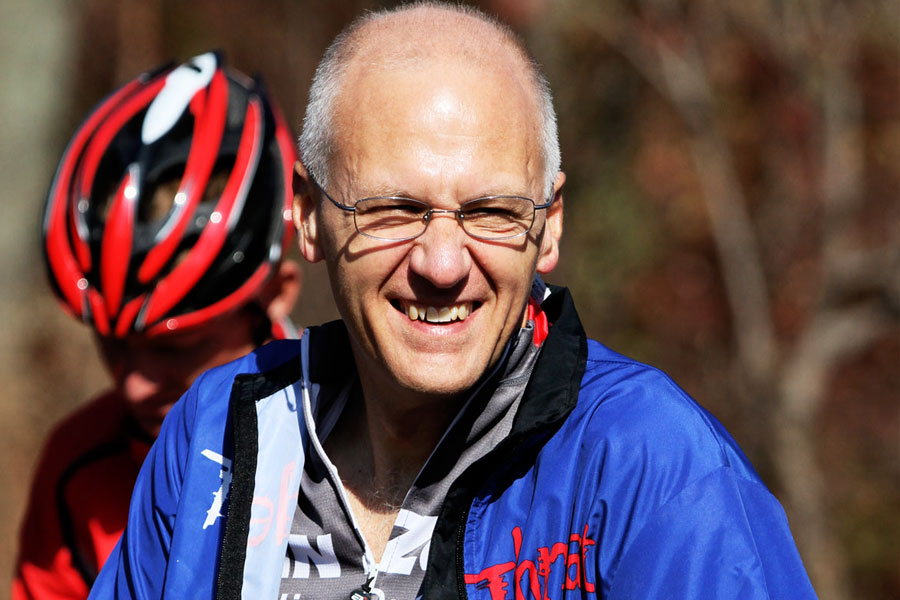
Built for speed: SportCrafters
 SportCrafters Inc. aims to be the dominant global manufacturer of cycling training equipment by 2018 — and is well on its way. The Granger, Ind.-based manufacturer has developed a proprietary technology that will transform the market for trainers (devices that turn road bikes into stationary bikes).
SportCrafters Inc. aims to be the dominant global manufacturer of cycling training equipment by 2018 — and is well on its way. The Granger, Ind.-based manufacturer has developed a proprietary technology that will transform the market for trainers (devices that turn road bikes into stationary bikes).
SportCrafters Inc. aims to be the dominant global manufacturer of cycling training equipment by 2018 — and is well on its way. The Granger, Ind.-based manufacturer has developed a proprietary technology that will transform the market for trainers (devices that turn road bikes into stationary bikes).
Traditional trainers are fluid-based, however, SportCrafters’ technology replicates road resistance without needing fluid. The company’s new product, the Omnium, is a boon for traveling athletes, explains Pete Colan, SportCrafters’ founder and president: “We can produce trainers that not only are legal to take on planes, but compact enough to stow in the overhead bins.”
In 2013 SportCrafters introduced a prototype of the Omnium at two industry shows, which resulted in a flood of phone calls from interested customers, including representatives of the U.S. Olympic Cycling Team. By the end of 2013, SportCrafters was gearing up for production — and already had six months worth of orders from customers. “People are talking about it all over the world,” Colan says, who expects the new line of products to increase SportCrafters’ annual revenue from $1.5 million to more than $4 million by 2015.
When it comes to innovation, this is not SportCrafters’ first rodeo. The company has created a number of unique products, including many for disabled athletes. For example, it makes the world’s only trainers for handcycles (vehicles powered by arms rather than legs).
Many of SportCrafters’ new products have resulted from custom jobs, such as a trainer for a recumbent trike that Colan fashioned from leftover parts. “That taught me not to throw away my junk,” he says, noting the device quickly moved from being a “one-off” item to selling more than 600 a year.
Colan launched SportCrafters in 1996, and in 2007 he opened a sister business — a retail bike store that his wife and daughter help operate. Spin Zone Cycling not only enables Colan to get direct feedback from customers but also provides a venue for events, such as a weekly bike ride that attracts up to 100 cyclists. The store also helps organize other wellness events, and its website hosts the region’s go-to calendar for cycling, triathlon and running events.
Although being a second-stage entrepreneur poses plenty of challenges, Colan says one big advantage is being able to leverage knowledge he gained in the Startup School of Hard Knocks. “As a second-stager, you’re more adept at risk-taking because you’ve built experience as to what works and what doesn’t,” he explains. “You can proceed with greater confidence, which in itself, helps guarantee success. Today we’re able to make more investments, even with financing, without sweating bullets in the middle of the night.”
In 2013 SportCrafters’ staff included a dozen workers — which is expected to grow significantly due to the new trainer line. “Yet jobs are a byproduct of our business,” Colan says. “Our biggest contribution, both through the manufacturing business and retail store, is providing opportunities for people to develop healthy habits. It’s incredibly rewarding.”